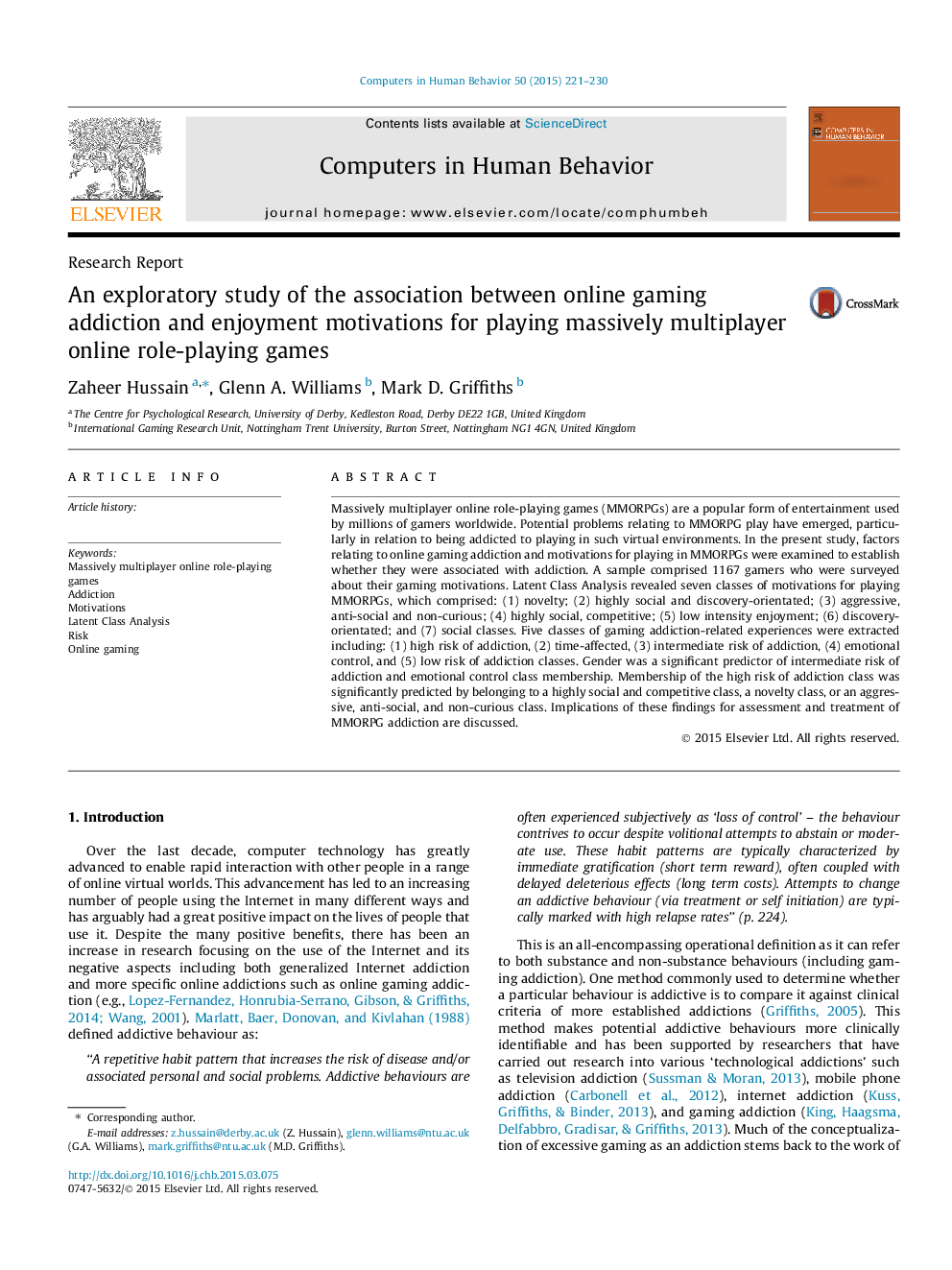| کد مقاله | کد نشریه | سال انتشار | مقاله انگلیسی | نسخه تمام متن |
|---|---|---|---|---|
| 6838152 | 618440 | 2015 | 10 صفحه PDF | دانلود رایگان |
عنوان انگلیسی مقاله ISI
An exploratory study of the association between online gaming addiction and enjoyment motivations for playing massively multiplayer online role-playing games
ترجمه فارسی عنوان
یک مطالعه اکتشافی مرتبط بودن اعتماد به نفس بازی آنلاین و انگیزه های لذت برای بازی آنلاین بازی های نقش چندگانه آنلاین چند نفره
دانلود مقاله + سفارش ترجمه
دانلود مقاله ISI انگلیسی
رایگان برای ایرانیان
کلمات کلیدی
بازی های آنلاین نقش بازی آنلاین چند نفره انبوه، اعتیاد، انگیزه ها، تجزیه و تحلیل کلاس خنثی، خطر، بازی آنلاین،
موضوعات مرتبط
مهندسی و علوم پایه
مهندسی کامپیوتر
نرم افزارهای علوم کامپیوتر
چکیده انگلیسی
Massively multiplayer online role-playing games (MMORPGs) are a popular form of entertainment used by millions of gamers worldwide. Potential problems relating to MMORPG play have emerged, particularly in relation to being addicted to playing in such virtual environments. In the present study, factors relating to online gaming addiction and motivations for playing in MMORPGs were examined to establish whether they were associated with addiction. A sample comprised 1167 gamers who were surveyed about their gaming motivations. Latent Class Analysis revealed seven classes of motivations for playing MMORPGs, which comprised: (1) novelty; (2) highly social and discovery-orientated; (3) aggressive, anti-social and non-curious; (4) highly social, competitive; (5) low intensity enjoyment; (6) discovery-orientated; and (7) social classes. Five classes of gaming addiction-related experiences were extracted including: (1) high risk of addiction, (2) time-affected, (3) intermediate risk of addiction, (4) emotional control, and (5) low risk of addiction classes. Gender was a significant predictor of intermediate risk of addiction and emotional control class membership. Membership of the high risk of addiction class was significantly predicted by belonging to a highly social and competitive class, a novelty class, or an aggressive, anti-social, and non-curious class. Implications of these findings for assessment and treatment of MMORPG addiction are discussed.
ناشر
Database: Elsevier - ScienceDirect (ساینس دایرکت)
Journal: Computers in Human Behavior - Volume 50, September 2015, Pages 221-230
Journal: Computers in Human Behavior - Volume 50, September 2015, Pages 221-230
نویسندگان
Zaheer Hussain, Glenn A. Williams, Mark D. Griffiths,
